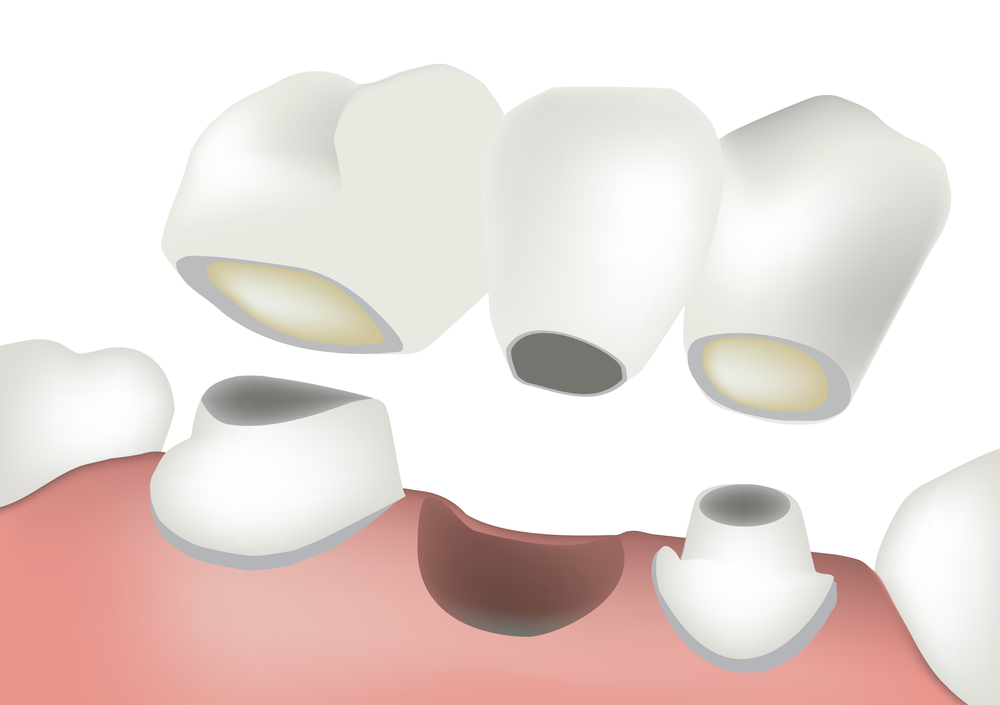Are there times when a dental bridge is more appropriate than a dental implant?

Dental bridges have been used successfully for decades in dentistry. Used to replace a single tooth or up to three teeth in a row, bridges can effectively restore aesthetics and function to your smile. Since the advent of dental implants – small titanium posts that are inserted into the jaw – research indicates that they are the most superior option for teeth replacement. But are there certain instances when a dental bridge may be the better choice? Read on to find out as Dr. John VandenBrink and our team at Glenora Dental clinic explore this topic.
The importance of replacing a missing tooth
All oral and maxillofacial structures work together to provide optimal function and health. This includes the teeth, gums, jaw joints, soft tissues, and all other aspects as well. When something happens to just one element, it can have a negative impact on your overall oral health. For example, one missing tooth can compromise the balance and structure of your bite. If the gap in your smile remains, the adjacent teeth can shift over time. Additionally, if your teeth do not fit together properly, it can cause issues with the TMJ as well. Therefore, a gap in your smile is much more than a simple cosmetic issue. Whenever a tooth is missing, replacing it is important for long-lasting healthy teeth and gums.
When is a dental bridge more appropriate than an implant?
There are several factors to consider when deciding between a dental bridge and an implant. As a general rule, dental implants are considered the most durable and predictable teeth replacement option on the market today. However, some patients may have medical conditions that prevent them from undergoing oral surgery. For example, uncontrolled diabetes, certain auto-immune diseases, and other disorders could seriously impede the body’s natural healing capabilities. In these cases, a dental bridge would be preferable over an implant. Secondly, there are some instances when implants are not an option due to bone density. In order for implants to be successful long-term, they must be totally embedded in a strong, healthy jawbone. Many times, a bone grafting procedure can increase eligibility. However, some patients do not desire to undergo two separate surgical procedures. Therefore, a tooth bridge would be an excellent choice in this scenario. Finally, some patients choose a dental bridge because there is generally a lower upfront cost. Currently, the average lifespan of a bridge is approximately 10 to 15 years. However, as dental materials continue to improve, this type of restoration may last even longer in the future.
Advantages of dental bridges
Tooth bridges continue to be one of the most time-tested solutions for teeth replacement, and they offer plenty of benefits. Some of these include:
- Smile aesthetics: With today’s dental materials, a bridge not only fills in the gap in your smile, but it can also deliver an incredibly lifelike result.
- Facial aesthetics: When teeth are missing, it can result in a gaunt or hollowed appearance in the cheeks. Dental bridges can help maintain the natural shape of your face.
- Bite restoration: Eating is not always easy if you are missing teeth. A dental bridge restores your bite so you can chew and eat without worry.
- Improved speech: It is not uncommon for patients to experience speech problems when they lose teeth. A bridge eliminates these issues, so you can speak in confidence.
- Prevents shifting: Although it won’t happen overnight, the neighbouring teeth can drift over time when a tooth is missing. This gradual process can lead to significant changes in your bite, which can compromise your oral health.
Contact your dentist in Edmonton, AB!
If you are missing a single tooth or two to three teeth in a row, a dental bridge could be the solution for you. To explore your treatment options, schedule a consultation with Dr. VandenBrink at our Edmonton, AB office located on 124th St. in Glenora. Call us at (780) 452-5700 or contact us online anytime.

